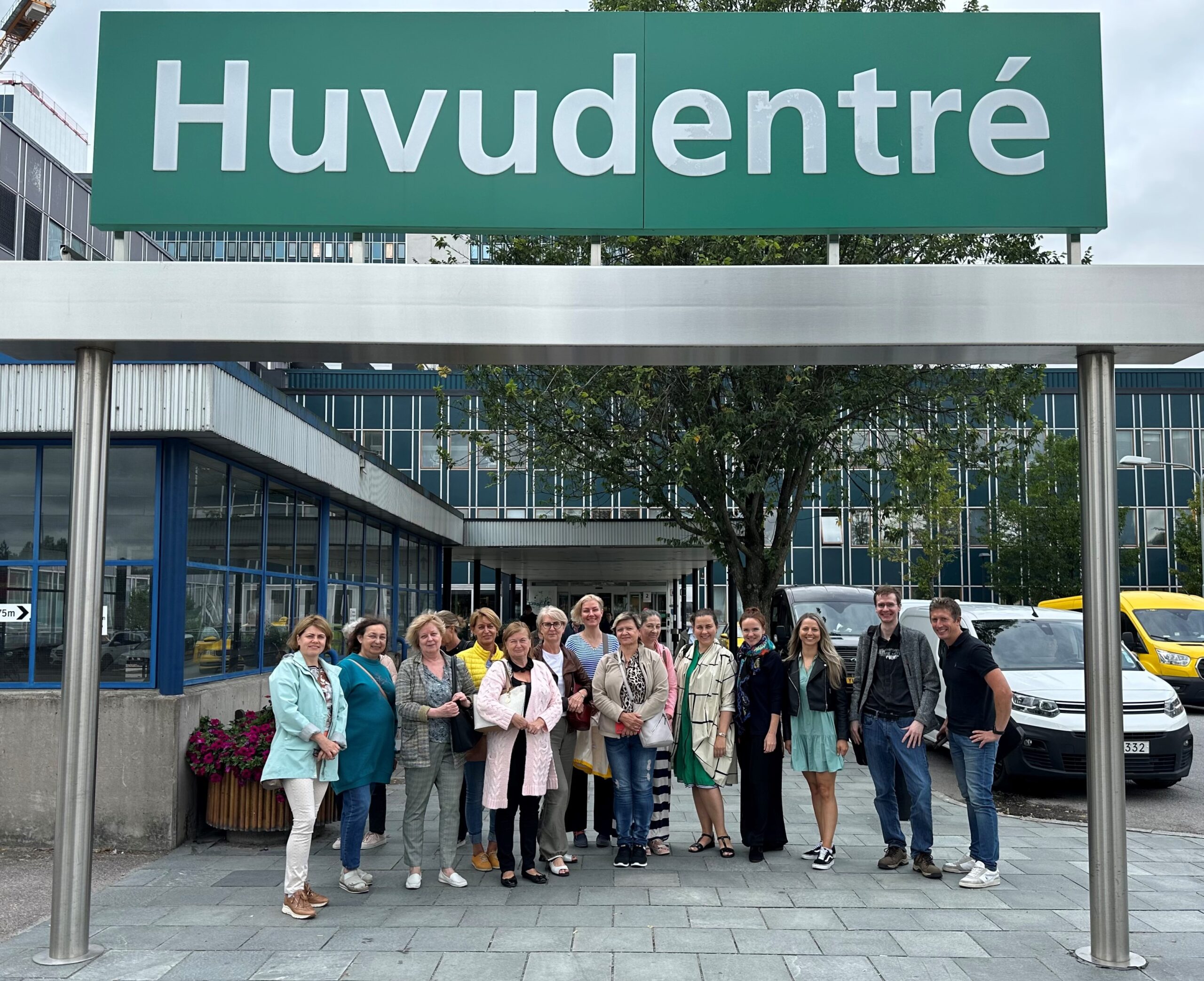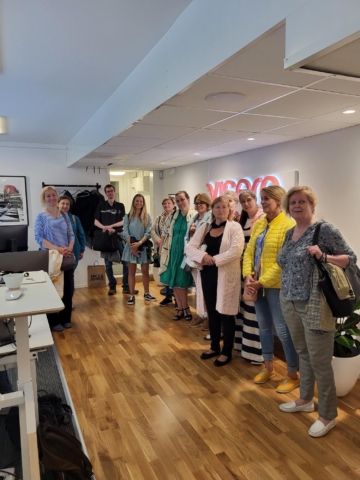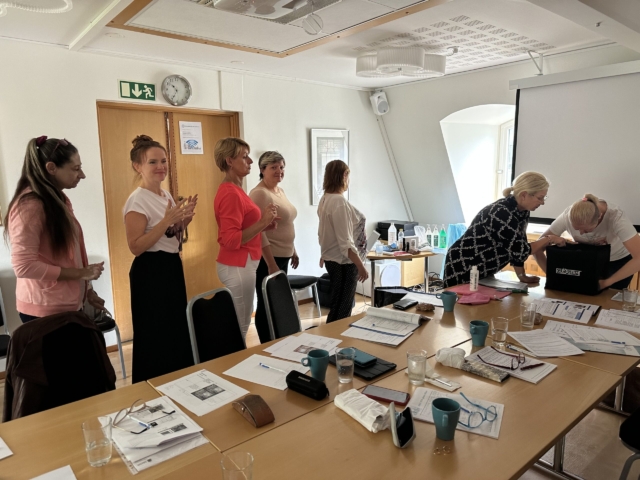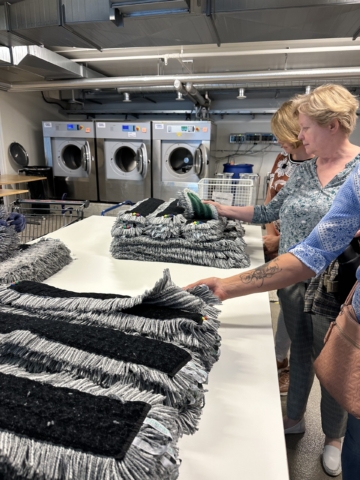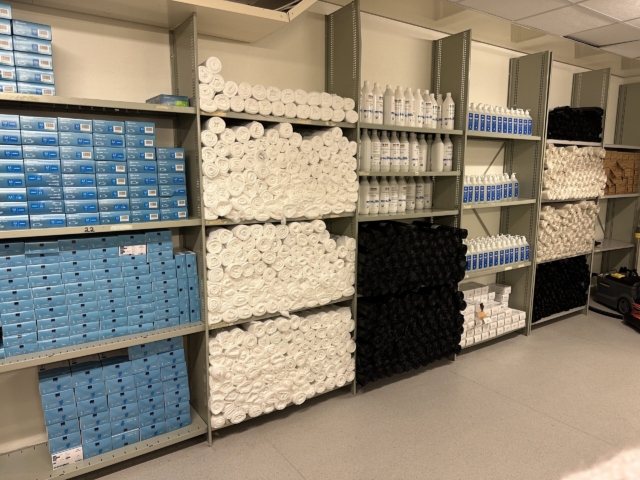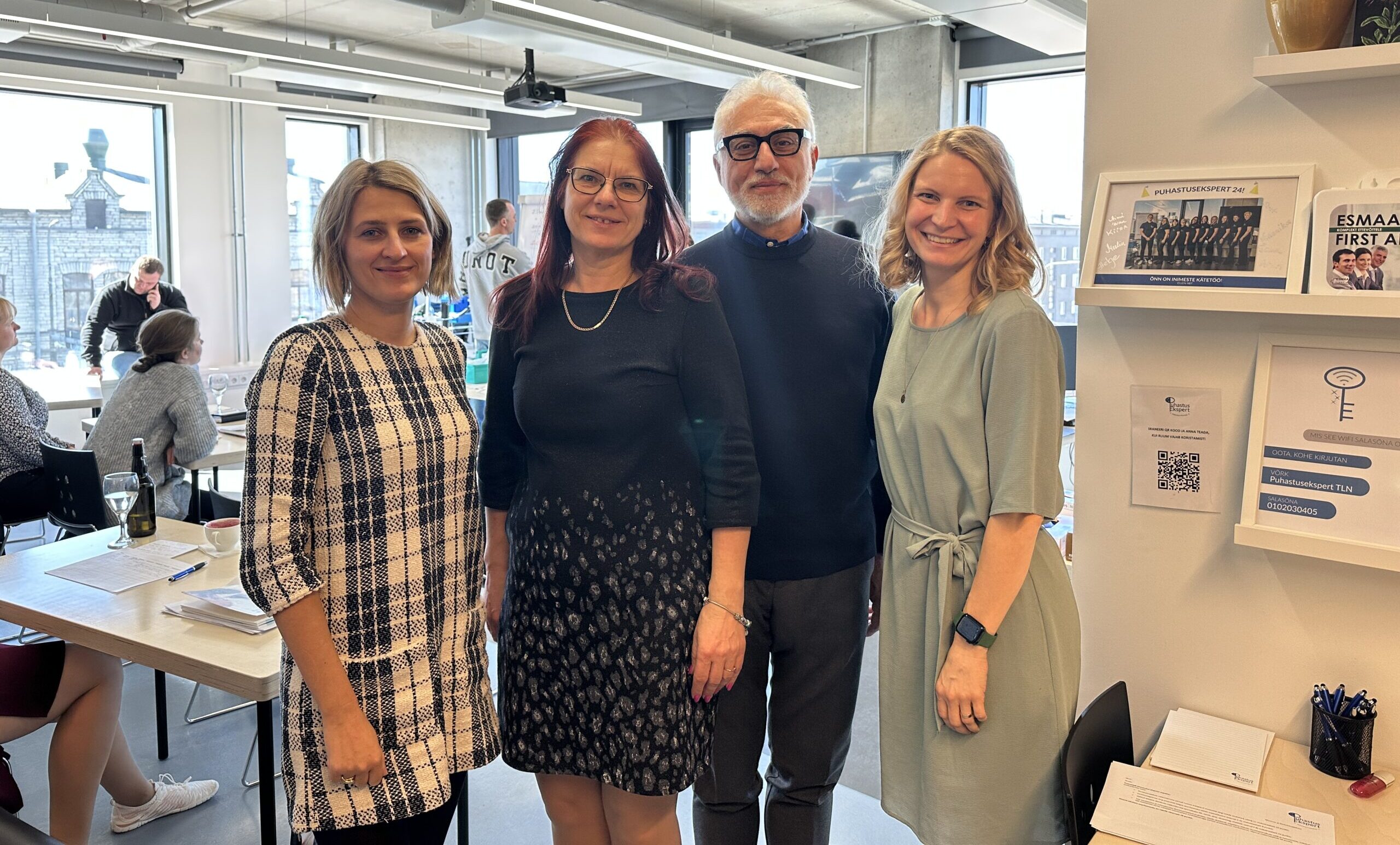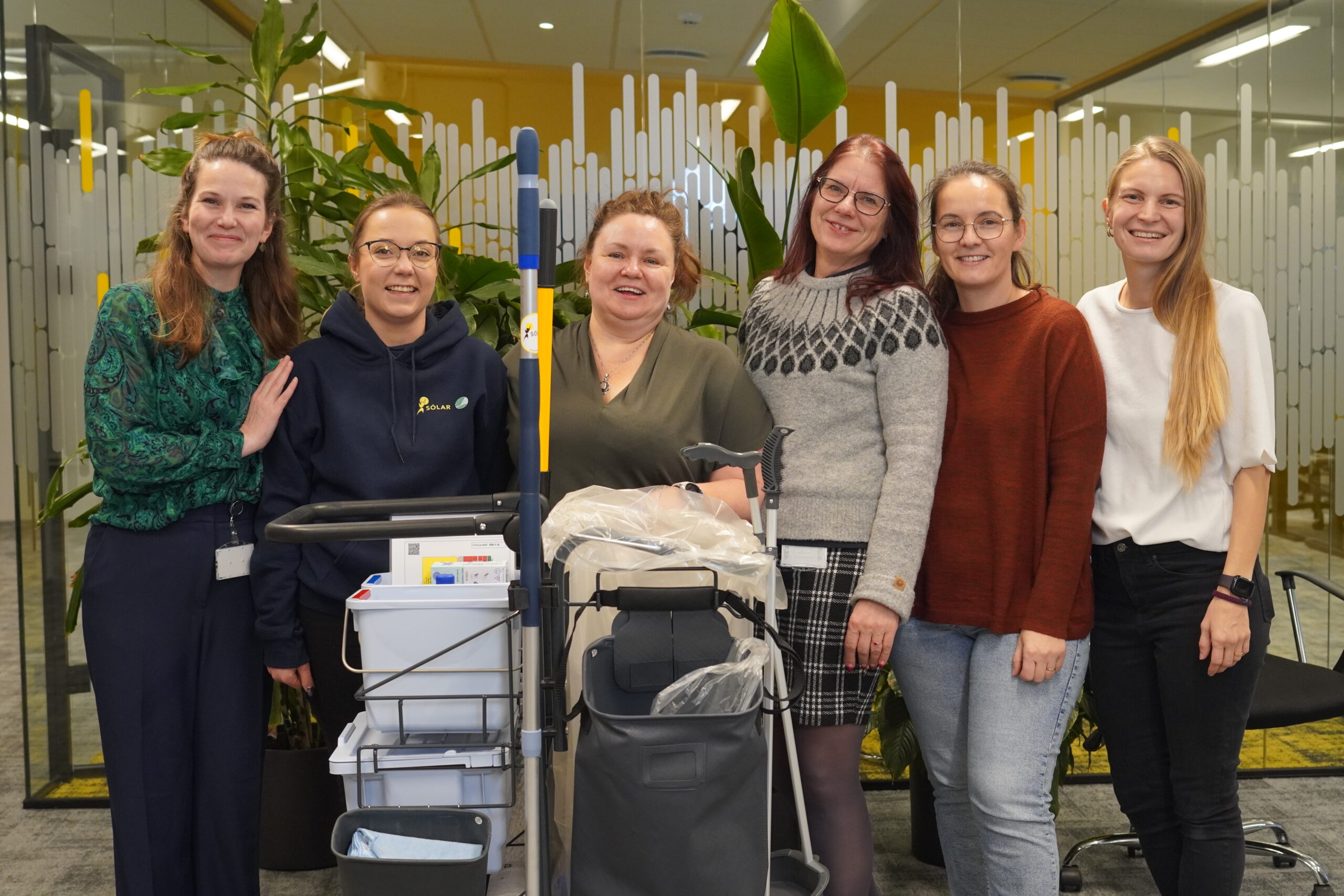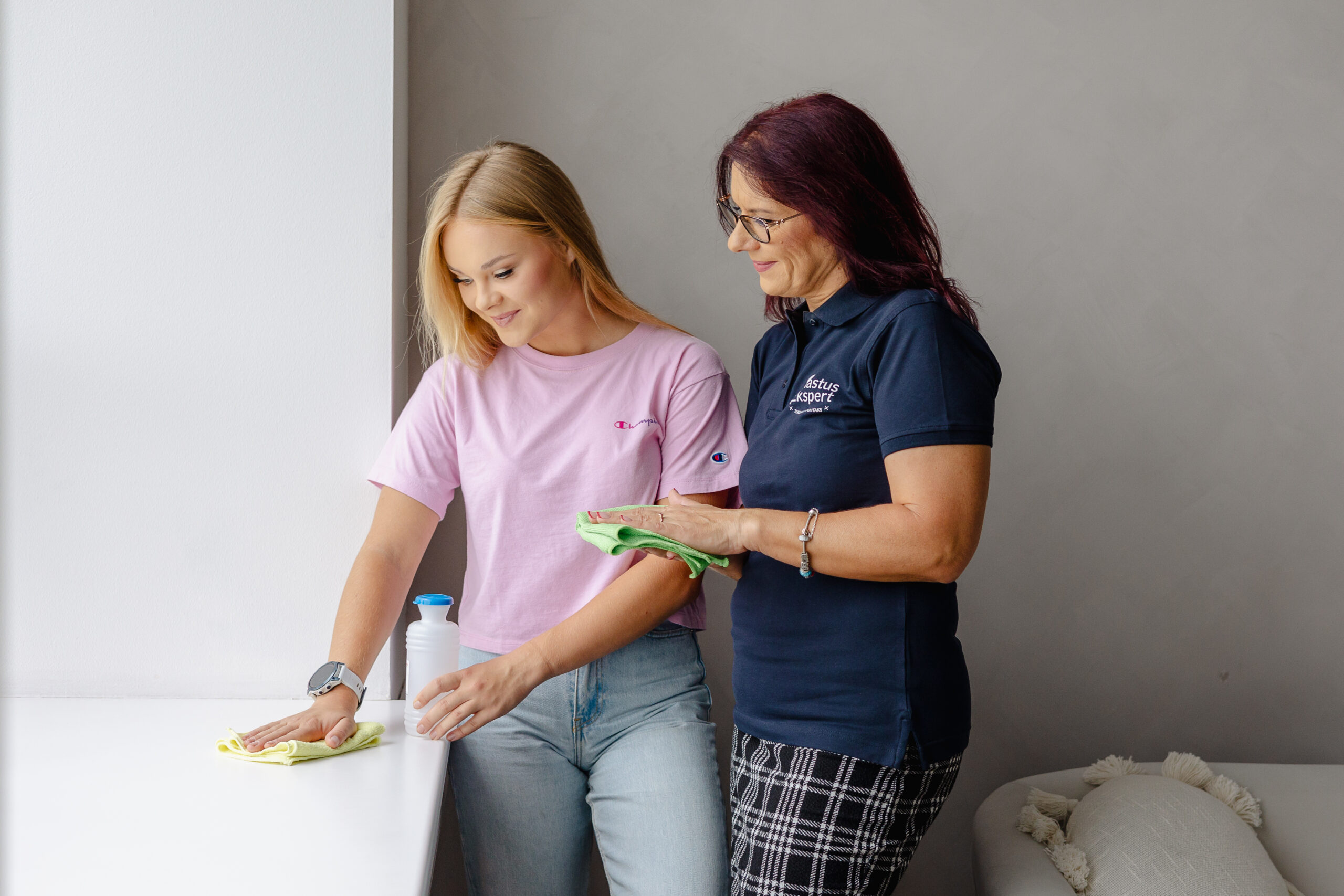Courses and trainings trip to Sweden from 22 to 24 August 2023

Martin Älenmark, head of Optiqo Sweden AB, and Karin Perling, instructor at Visera AB, served as instructors during the courses and trainings trip.
One of the main objectives of the courses and trainings trip was to learn how hospitals apply the relevant standard to determine the quality of cleaning. Standard EVS944:2023 “Requirements for cleaning in health care institutions”, which regulates the cleaning of hospitals and health care facilities, entered into force in Estonia in March 2023. This is a translated version of the standard adopted in Denmark in 2008 by the Danish Health Authority (“Infection control in the health care sector – Part 10: Requirements for Cleaning”). This standard is used to assess the quality of cleanliness in Denmark, Sweden, Norway and Iceland.
As part of the study trip training session, we visited Danderyds Hospital in Stockholm, where we became acquainted with how the hospital organises cleaning, maintains cleaning textiles, assembles cleaning trolleys and uses Optiqo’s software for scheduling and data collection.
We also familiarised ourselves with the features of Optiqo’s software, which is used to optimise, organise, collect and analyse cleaning data. Using Optiqo’s software to assess the quality of cleaning saves a considerable amount of time and is an excellent way to quickly implement the necessary changes based on the findings of statistical data.
We gained a lot of knowledge during the courses and trainings trip and validated a lot of what we already knew. Learning from the experience of others is extremely valuable, as it helps to quickly implement proven solutions and to avoid potential mistakes.
For example, it is worth noting that according to research in this area, 80% of infections are transmitted through the hands, therefore making hand hygiene of vital importance. To prevent infections in a hospital setting it is important to first understand who moves around the hospital premises – patients, doctors, nurses, carers, cleaners, visitors, logisticians, care technicians, etc. Secondly, we need to raise the awareness and ability of all these people to prevent and stop the spread of infections. The key to health safety therefore lies primarily in having trained staff.
Cooperation between hospital staff and the cleaning team is a major opportunity for managing health risks. Both Swedish and Estonian hospitals face shortcomings in this area. The courses and trainings trip attendees repeatedly concluded that hospitals would be much cleaner and the risks of infection lower if management, infection control and cleaning staff were all involved in the development and organisation of various guidelines, training courses and procurement projects.
We reiterated the golden rule of cleaning: cleaning outcomes always depend on aseptic cleaning, i.e. cleaning in a top-down direction (top surfaces are cleaned first before moving towards the floor level) and moving from cleanest to dirtiest areas (with the latter being cleaned last).
The participants were very happy with the experience and we are already looking forward to putting the lessons learned into practice.


